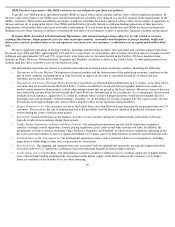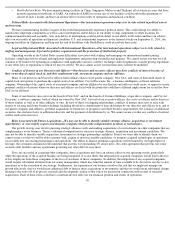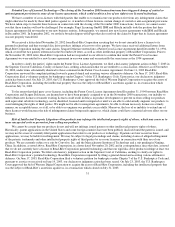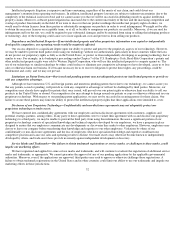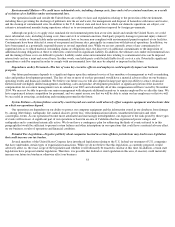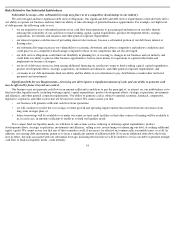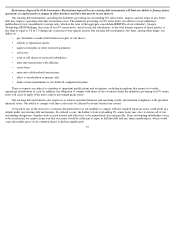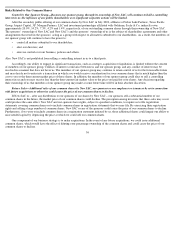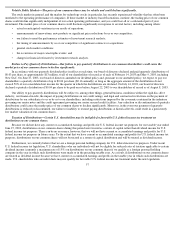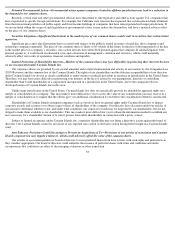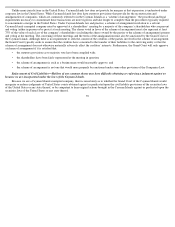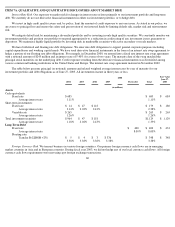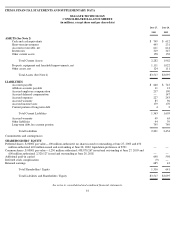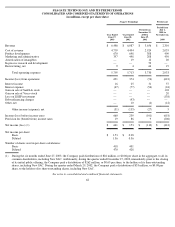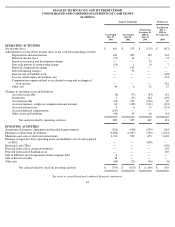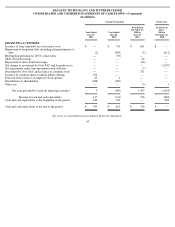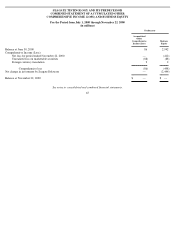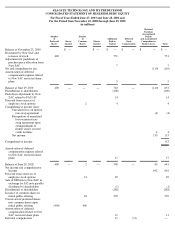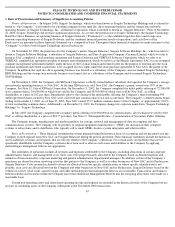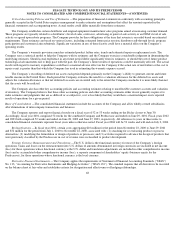Seagate 2002 Annual Report Download - page 64
Download and view the complete annual report
Please find page 64 of the 2002 Seagate annual report below. You can navigate through the pages in the report by either clicking on the pages listed below, or by using the keyword search tool below to find specific information within the annual report.
Unlike many jurisdictions in the United States, Cayman Islands law does not provide for mergers as that expression is understood under
corporate law in the United States. While Cayman Islands law does have statutory provisions that provide for the reconstruction and
amalgamation of companies, which are commonly referred to in the Cayman Islands as a “scheme of arrangement,” the procedural and legal
requirements necessary to consummate these transactions are more rigorous and take longer to complete than the procedures typically required
to consummate a merger in the United States. Under Cayman Islands law and practice, a scheme of arrangement in relation to a solvent
Cayman Islands exempted company must be approved at a shareholders’ meeting by a majority of the company’s shareholders who are present
and voting (either in person or by proxy) at such meeting. The shares voted in favor of the scheme of arrangement must also represent at least
75% of the value of each class of the company’
s shareholders (excluding the shares owned by the parties to the scheme of arrangement) present
and voting at the meeting. The convening of these meetings and the terms of the amalgamation must also be sanctioned by the Grand Court of
the Cayman Islands. Although there is no requirement to seek the consent of the creditors of the parties involved in the scheme of arrangement,
the Grand Court typically seeks to ensure that the creditors have consented to the transfer of their liabilities to the surviving entity or that the
scheme of arrangement does not otherwise materially adversely affect the creditors’ interests. Furthermore, the Grand Court will only approve
a scheme of arrangement if it is satisfied that:
•
the statutory provisions as to majority vote have been complied with;
•
the shareholders have been fairly represented at the meeting in question;
•
the scheme of arrangement is such as a businessman would reasonably approve; and
Enforcement of Civil Liabilities—Holders of our common shares may have difficulty obtaining or enforcing a judgment against us
because we are incorporated under the laws of the Cayman Islands.
•
the scheme of arrangement is not one that would more properly be sanctioned under some other provision of the Companies Law.
Because we are a Cayman Islands exempted company, there is uncertainty as to whether the Grand Court of the Cayman Islands would
recognize or enforce judgments of United States courts obtained against us predicated upon the civil liability provisions of the securities laws
of the United States or any state thereof, or be competent to hear original actions brought in the Cayman Islands against us predicated upon the
securities laws of the United States or any state thereof.
59


